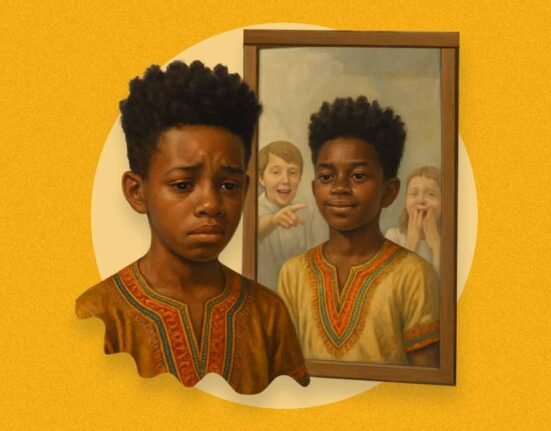Crime has been present since time immemorial, upsetting social establishments and pushing the frontiers of morality. What makes a person commit a crime? Is the act done by choice? Or does something innate in the person cause it? Perhaps a characteristic of their environment plays a role. Or could the advent of deep-rooted psychological attributes cause it? Criminal psychology tries to find that, peeling down to the depth of a human mind into what could potentially break societal bounds in such a being.
Criminal behaviour studies don’t focus on stamping the act as right or wrong. Instead, they are an intricately complex study of how thoughts, feelings, and experiences blend to make up the psyche. As such, psychologists go deeply into the criminal’s psyche and try to understand the reasons and thinking processes that come together and culminate in the given crime. Thus, the research bridges two imperatives: the urge for justice in society and responsibility toward rehabilitation, thereby making treatment a more humane approach to controlling crime.
Crime psychology encompasses not only the court setting but also further-reaching questions into human behaviour and its moral aspect as well as societal influence. Why does one person win against all odds while another fails? Why do criminals tend to yield while successful individuals avoid illegal acts at all costs? Does that necessarily connote childhood experiences, mental illness history, or some influences of peer groups? What can society do to put an end to these behaviours or rehabilitate those who have strayed from the pathway of lawfulness?
In going along these questions, the present article explores the psychical dimension to which criminal behaviour tends. Reviewing theories of crime concerning personality traits, mental illness issues, and the surroundings’ impact, the endeavour attempts to give a deeper picture of the criminal mind as seen from different perspectives and areas for analysis. Finally, an unhesitant approach through inquiry, showing concern, and offering a solution will be needed to cross this stigma.
Read More: Forensic Psychology vs Criminal Psychology
Understanding Criminal Behavior
1. Nature vs. Nurture in Criminal Behavior
Criminal behaviour psychologists argue whether genetic factors or environmental conditions determine criminal behaviour. It appears studies reveal, both have a part to play in criminal behaviour.
- Nature: Twin and family study indicates that genetic influences may shape the tendency to offend. Mednick et al. (1984) suggested that the criminal careers of biological parents influence the nature of offenders and their adoptees.
- Nurture: Associated environmental factors that have been documented to accompany criminal behaviour are childhood neglect, poverty exposure to violence. However, normally such risks are mitigated or nullified by stable care and supportive environments and thus much attention is accorded to the effect of the environment.
2. Personality Traits and Crime
There are personality traits that have been associated with criminal behaviour. The “Dark Triad” of personality traits most researchers associate with antisocial and criminal behaviours are narcissism, Machiavellianism, and psychopathy (Paulhus & Williams, 2002).
- Psychopathy: toxic tends to be characterized by a lack of empathy, impulsivity, and manipulative behaviour, increasing the likelihood of committing crimes.
- Impulsivity and Aggression: These are very important in crimes involving violence where individuals do not care about the consequences of their actions.
Read More: The Role of Psychology in Criminal Profiling
Psychological Theories of Criminal Behavior
- Social Learning Theory: Humans can learn behaviours by observing, through these observation periods mostly relying on models. If it holds out that criminal activities are rewarding and also the norm, then surely it breeds children to commit those same criminal behaviours (Bandura, 1977). For example, a youngster is taught survival or respect only through petty crime or violence by growing up in a gang-infested locality.
- Strain Theory: According to Robert Merton’s Strain Theory, pressure from society to attain goals but with an absence of legitimate opportunity leads some people to commit crimes (Merton, 1938). For instance, financial strain pushes people to theft or fraud when they feel that they cannot gain success through conventional means.
- Cognitive Distortions: Cognitive distortions are used by criminals to justify their behaviour. For example, a criminal downplays the harm or blames the victim. The thief may explain his stealing as the victim could afford the loss. CBT often focuses on these distortions to correct the behaviour.
- Psychodynamic Theory: In Freudian accounts, criminal impulses are due to unresolved childhood conflicts or imbalances of the id, ego, and superego. Instinctive impulses over-excite the id and eventually gain over the rational ego to trigger impulsive acts (Freud, 1923).
Read More: The Enigma of Evil: Deconstructing Ted Bundy’s Criminal Psychology
Psychological Illness and Crime
- Mental Disorders and Crime: Crime has not been committed by all people suffering from mental illnesses, but rather different mental disorders have afflicted a grossly disproportionate number of criminals.
- Antisocial Personality Disorder(ASPD): It causes the individual to be without care for other people’s rights and is a habitual offender who is also common (American Psychiatric Association, 2013).
- Substance Use Disorders: Addiction usually makes them commit crimes because they require money to finance their habits. Therefore, more people have been incarcerated for drug-related offences.
- Even though this is very rare, an untreated case of schizophrenia may sometimes result in violent behaviour by people, especially due to delusions or paranoia.
- Trauma and Crime: Negative Childhood Experiences: Examples include acts of neglect and abuse that greatly affect one’s possibility of being a criminal or not; they deal with trauma that is so intense to affect a person’s emotional regulation and judgment that it leaves room for antisocial behaviour (Felitti et al., 1998).
Read More: The Psychology Behind the Last Meal Requests of Criminals
Environmental Factors and Crime
- Intergenerational Crime: Offspring of inmates are more likely to commit crimes. It shows the cycle of crime.
- Family and Parenting: Family composition is one of the best determinants of conduct. Parent Neglect/Abuse. Lack of care or abuse conditions mainly result in attachments translated into criminal behaviour.
- Peer Influence: Teenagers are more prone to peer influence. The higher the influence of delinquent friends, the higher the likelihood of crime. This is because of human nature subscribing to the norms of the group to get social acceptance.
- Socio-Economic Factors: Poverty, unemployment, and lack of literacy go hand in hand with crimes. Such a situation is bound to create a level of despair and very scant means of living. In other words, people commit crimes to stay alive or earn something.
Read More: Criminal Offense: From the Perception of Perpetrator and Victim
Rehabilitation and Prevention
- Psychological Counseling: Successful rehabilitative processes tackle the roots of criminal activity.
- CBT: CBT can be considered to ensure that the misperception of the thinking pattern is modified by the convicts to reduce recidivism.
- Anger Management Programs: Such programs help violent offenders in their emotional management.
- Early Interventions: Crime prevention usually starts in childhood. Positive parenting, education, and community involvement reduce the chances of children engaging in delinquent behaviour.
- Restorative Justice: Restorative justice is a technique focusing on the restoration of harm and reintegration of offenders into society. In this technique, the offenders are made accountable and sympathetic toward others through mediation between victims and offenders.
Read More: Victimology: Understanding the Psychological Impact of Crime
Conclusion
Thus, the criminal psyche can become all the more inevitable to understand through embracing a multi-layered approach: that is to say biological predispositions, psychological traits and environmental factors. In a way, such knowledge, leading towards action, goes to promote and achieve effective prevention as well as the rehabilitation of criminals. Therefore, in this regard, studies undertaken remain very relevant to ensure the betterment of the collective human beings
References +
American Psychiatric Association. (2013). Diagnostic and Statistical Manual of Mental Disorders (5th ed.).
Bandura, A. (1977). Social learning theory. Prentice-Hall.
Felitti, V. J., Anda, R. F., Nordenberg, D., Williamson, D. F., Spitz, A. M., Edwards, V., … & Marks, J. S. (1998). Relationship of childhood abuse and household dysfunction to many of the leading causes of death in adults: The Adverse Childhood Experiences (ACE) Study. American Journal of Preventive Medicine, 14(4), 245-258.
Freud, S. (1923). The ego and the id.
Merton, R. K. (1938). Social structure and anomie. American Sociological Review, 3(5), 672-682.
Mednick, S. A., Gabrielli, W. F., & Hutchings, B. (1984). Genetic influences in criminal convictions: Evidence from an adoption cohort. Science, 224(4651), 891-894.
Paulhus, D. L., & Williams, K. M. (2002). The dark triad of personality: Narcissism, Machiavellianism, and psychopathy. Journal of Research in Personality, 36(6), 556-563.













Leave feedback about this